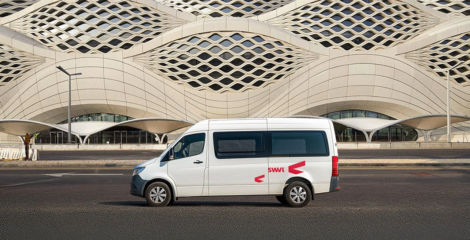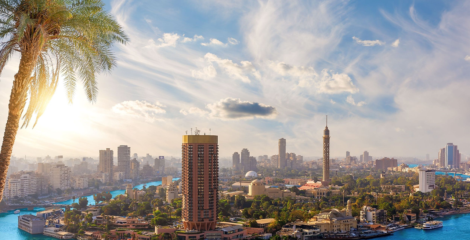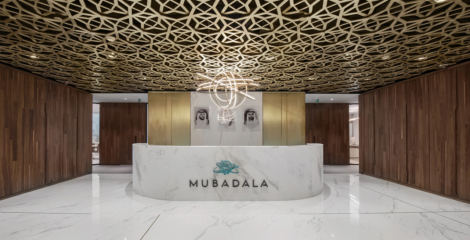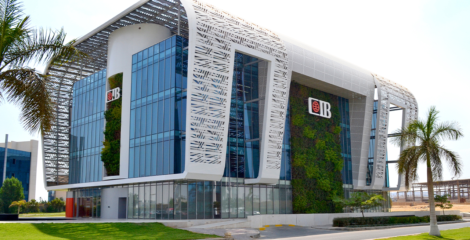With talks about a second wave of coronavirus, the infamous year 2020 is coming to an end, leaving many with at least one lesson to learn from; Egyptian Billionaire Mohamed Mansour, 72, has certainly had a few.
At his residence in London, the city he calls home, Egypt’s second richest man conducted a Q&A with Bloomberg about his life and business during the pandemic. We couldn’t help but share some of his remarks and learnings on investment.
Don’t put your money in banks
“I used to leave my money with the banks,” Mansour says. “But I wasn’t pleased with the returns I was getting.” The Mansour family has been known to be a big stakeholder in Credit Agricole. In January 2006, the Crédit Agricole Group and the El Mansour and El Maghraby for Development & Investment Group acquired a majority stake in the Egyptian American Bank, leading to the creation of Credit Agricole Egypt.
In 2011, Credit Agricole Egypt accepted the collective resignation of board members related to Mubarak-era government ministers, Mansour (he was the minister of transport) and Ahmed El-Maghrabi. By that time, the Mansour and Maghrabi Group owned 17% of the bank’s EGP 1.14 billion worth of shares with Credit Agricole France owning 60%. Four years later, the group sold 4% of their stocks for EGP 257 million.
In the Bloomberg interview, Mansour didn’t name the bank(s) he withdrew his money from.
“They always have an A-team that meets you at first, and you think, ‘Wow!’ But you don’t really know who manages your money, and then you get a 2% return one year.”
Mohamed Mansour, Businessman
“Technology is where the future is”
Mansour’s son Loutfy runs Mansour Group’s private investment arm, Man Capital, that was founded in 2010 in London. With a team of 10 employees across the US, Europe and Asia, and seals about two deals per year. Investments include marine logistics firm Vanguard, Millennium Offshore Services, and Nigerian telecoms infrastructure provider IHS Towers.
“Technology is where the future is, and we invested early in Facebook, Twitter, Uber, Spotify and more recently in Snowflake and Adyen. When [COVID-19] started hitting Europe and the numbers started doubling every five or seven days, I told my team we needed to exit any stocks not in the technology sector. “
US Elections
The entire world has been waiting at the edge of its seat, wondering how the US presidential race will reflect on the business world. When Joe Biden was announced to be US President-elect the other day, no one on the stock market really seemed to care, reports Vox.
We’ve gone into the market a bit since then, mostly in tech, but we have quite a bit of cash as we’re waiting to see what happens. It’ll be interesting to see how the U.S. election affects the markets.
Before you head out… here’s some background
Born into one of the most prominent business families in Alexandria, controlling nine of Egypt’s top Fortune 500 companies, though it needed to survive the nationalization and confiscation of its assets in 1965.
Mansour Group started as a cotton business founded in 1952 by Loutfy Mansour, one of the first Egyptians to graduate from Cambridge. The business was nationalized by President Gamal Nasser in the 1970s, forcing Mansour to Sudan and eventually Switzerland, where he continued to work in the cotton business. His sons attended school in the United States while he was working. Eventually, when Egypt returned to a market economy in the early 1970s, Mansour and his sons were able to return.
At that time, General Motors was looking for Egyptian partners to help them expand, and were connected with the Mansour family. The family set up a GM dealership and obtained Egyptian sales rights in 1975. The company was called Al-Mansour Automotive. In 1984, GM opened its first factory in Egypt, and 1985 the first GM vehicle was produced in the country. Al-Mansour Automotive gained rights to sell GM cars in Africa, and eventually became the largest GM dealership in the world.
In 1977, Mansour Group secured rights to sell and distribute Caterpillar digging equipment in Egypt. The Mantrac subsidiary was formed to manage the Caterpillar business, and Mantrac eventually secured Caterpillar rights to Sub-Saharan Africa, Russia and Iraq. As of 2015. Mantrac was the fifth largest Caterpillar dealer in the world.
1n 1992, Mansour Group created an autonomous company, Mansour Financial, formally the Al-Mansour Holding Company for Financial Investments (MHCFI) to manage a license agreement with Philip Morris International (PMI) to produce and distribute PMI’s brands in Egypt. The Al-Mansour International Distribution Company (AMIDC) was created underneath Mansour Financial to manage the tobacco business. When the Philip Morris partnership ended in 2014, AMIDC partnered with Imperial Brands, then called Imperial Tobacco.
Manfoods was created in 1994 to manage McDonald’s franchises in Egypt.
With his two brothers, Mansour maintained an active role in the Mansour Group, the family business, building close ties as distributors for US companies including Chevrolet, Marlboro, General Motors and Caterpillar.[2] Some of his other interests include Metro, the largest Egyptian supermarket chain, and McDonald’s franchises in Egypt.
Mansour has led the group since his father died in 1976. Since then, he has overseen all the major corporate developments, including setting up the company’s private investment subsidiary Man Capital in London.
In January 2006 Mansour resigned his business responsibilities to serve as minister of transport, only to resign in October 2009 after a deadly train crash.
If you see something out of place or would like to contribute to this story, check out our Ethics and Policy section.














